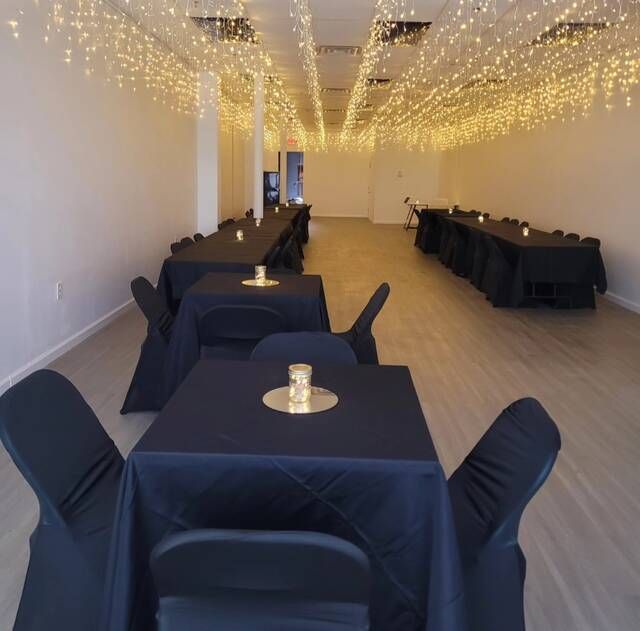Planning to set up an event space? One crucial aspect to consider is deciphering the zoning requirements. Understanding what zoning regulations you need to comply with is essential for the successful establishment of your event venue. Zoning laws can differ vastly based on location, type of event, and even the size of the space. From zoning restrictions on the type of events permissible to parking and noise regulations, navigating through the zoning maze can be perplexing. In this blog, we will delve into the intricacies of zoning requirements for event spaces, shedding light on what zoning you need to consider to ensure a smooth and legal operation.
Understanding Zoning Regulations
As you plan your event space, understanding zoning regulations is crucial to ensure compliance with local laws and regulations. Zoning regulations dictate how land can be used and what activities are permitted in specific areas. For event spaces, zoning laws may determine the type of events that can be hosted, the maximum capacity allowed, parking requirements, noise restrictions, and more.
Types of Zoning Regulations
There are different types of zoning regulations that may impact your event space. Zoning laws categorize areas into zones such as residential, commercial, industrial, and mixed-use. Each zone has specific regulations regarding the permissible land use and building requirements.
Zoning Compliance Process
Before establishing an event space, it is essential to verify the zoning requirements for the intended location. Getting in touch with the local zoning office is crucial to understand the specific regulations that apply to your event space. Ensure that your event space complies with all zoning laws to avoid potential fines or legal issues.

Types of Zoning for Event Spaces
Understanding the various types of zoning requirements for event spaces is crucial in ensuring compliance with local regulations. Different zoning classifications dictate the permissible use and activities that can take place within a specific area. When setting up an event space, it is important to consider the following zoning categories:
Zoning Based on Land Use
Zoning based on land use categorizes areas for specific purposes such as residential, commercial, industrial, or mixed-use. Event spaces may fall under commercial or mixed-use zoning, depending on the nature of the events held.
Zoning Based on Special Events
Some regions have special event zoning regulations that govern the hosting of temporary events like festivals, fairs, or concerts. These regulations often outline the duration, noise level, and other requirements for such events.
- Permits may be required for organizing events in areas designated for special events zoning.
- Compliance with noise ordinances and waste management guidelines is essential.
Identifying Your Zoning Needs
When setting up an event space, understanding what zoning do you need for an event space is crucial. Begin by researching the local zoning ordinances applicable to your location. Check with the city or county planning department for the most current information.
Types of Zoning
There are different types of zoning categories that may impact your event space. These include Residential, Commercial, Industrial, or Special Use zoning. Determine the classification that best suits your event.
Zoning Regulations
Each zoning classification comes with specific regulations. These may cover aspects such as permissible activities, parking requirements, noise restrictions, and building codes. Properly adhere to these regulations when planning your event space.
Consulting with Local Authorities
When determining the zoning requirements for your event space, it’s crucial to consult with local authorities to ensure compliance with regulations. Local authorities such as zoning boards or planning departments can provide valuable insights into the specific zoning regulations that apply to your event space.
Understanding Zoning Categories
Local authorities can help you understand the different zoning categories that exist and which category is suitable for your event space. Each zoning category specifies the allowable land use, building requirements, and other restrictions that may impact your event space.
Obtaining Zoning Permits
Local authorities can guide you through the process of obtaining the necessary zoning permits for your event space. These permits are essential to ensure that your event space complies with all zoning regulations and can operate legally.
- Submit zoning application promptly
- Follow up with zoning department for any updates

Common Zoning Requirements for Event Spaces
When setting up an event space, it is crucial to understand what zoning do you need for an event space. Zoning regulations dictate the acceptable uses of a space based on the designated zoning category, ensuring that events comply with local laws and regulations to operate legally.
Zoning Category Determination
To determine the necessary zoning requirements for an event space, consider the zoning category designated by the local municipality. Commonly used categories include residential, commercial, industrial, and mixed-use areas.
Permitted Uses and Restrictions
Each zoning category specifies permitted uses and restrictions for event spaces. It’s essential to review local zoning ordinances to understand the specific regulations governing event spaces within each category. Some areas may allow events as a temporary use under certain conditions.
Navigating Zoning Changes and Variances
Understanding the zoning requirements for your event space is crucial to ensure compliance with local regulations. Zoning changes and variances play a significant role in determining what type of activities are allowed on a specific property.
Types of Zoning Changes
When considering zoning changes, it’s essential to be aware of the different types available. These may include rezoning, conditional use permits, and overlays.
Applying for a conditional use permit can allow for specific activities that are not typically permitted within a certain zone.
Applying for Variances
Variances are sought when a property owner wishes to deviate from the zoning regulations set by the local government. This could include setbacks, height restrictions, or land use limitations.
- Variances are typically granted on a case-by-case basis and require a thorough review process.
- Meeting the specific criteria for variances is crucial to obtaining approval from the zoning board.
Ensuring Compliance with Zoning Laws
When planning an event space, it is crucial to ensure compliance with zoning laws. Understanding what zoning you need for an event space is essential to prevent any legal issues.
Research Zoning Regulations
Begin by researching the zoning regulations specific to your event space location. Look for current guidelines applicable in 2022.
- Check permitted land use
- Review building restrictions
- Understand parking requirements
Frequently Asked Questions
-
- What are zoning requirements for an event space?
- Zoning requirements for event spaces typically specify the type of events that can be held, permissible hours of operation, parking regulations, noise restrictions, and occupancy limits.
-
- How do I determine the zoning needed for my event space?
- To determine the zoning requirements for your event space, you should check with your local zoning department or planning commission. They can provide information on the specific zoning regulations that apply to your location.
-
- Do different types of events require different zoning?
- Yes, different types of events may require different zoning designations. For example, hosting a large music festival may have different zoning requirements compared to organizing a small private event.
-
- Can I request a zoning variance for my event space?
- In some cases, you may be able to request a zoning variance for your event space if it does not fully comply with the existing zoning regulations. However, this process can be complex and may require approval from local authorities.
-
- What should I consider before choosing an event space based on zoning?
- Before choosing an event space based on zoning requirements, consider factors such as proximity to residential areas, accessibility for attendees, parking availability, noise restrictions, and whether the space meets occupancy requirements for your event.
Unlocking the Right Zoning for Your Dream Event Space
In conclusion, understanding the zoning requirements for your event space is paramount to the success of your venture. By delving into the intricacies of zoning regulations, you can ensure that your space complies with local laws and operates seamlessly. Remember, the specific zoning you need for an event space will depend on factors such as location, size, and intended use. Consulting with zoning professionals and local authorities will provide you with invaluable insights and guidance throughout this process. Stay informed, stay compliant, and watch your event space thrive within the legal framework designed for its success.

